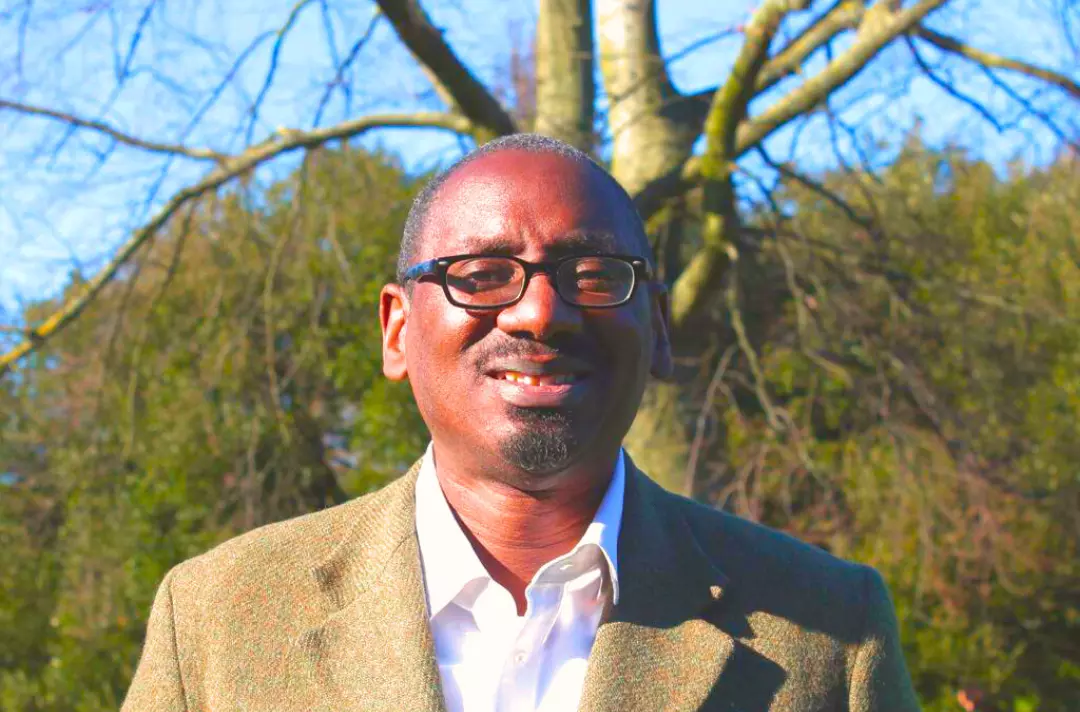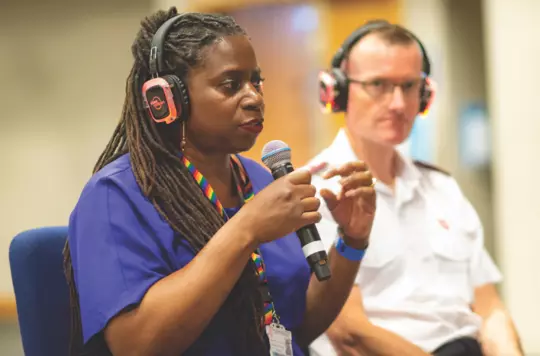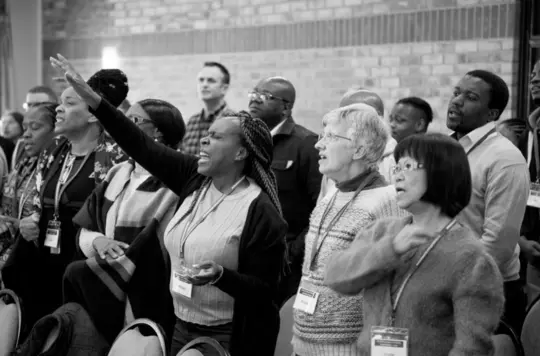22 June 2023
Windrush 75: Sea Change
Interview by Philip Halcrow

Richard Reddie of Churches Together in Britain and Ireland reflects on what sustained the Windrush generation and how they helped shape Britain for the better.
Life for the people who disembarked from HMT Empire Windrush on 22 June 1948 and for those who followed in their wake was not always easy. They experienced discrimination when looking for housing and employment. They encountered in-your-face racism. ‘Yes they struggled,’ says Richard Reddie, ‘but they succeeded.’
As the 75th anniversary of Windrush approached, Richard, who is director of justice and inclusion at ecumenical group Churches Together in Britain and Ireland, was invited to join the steering group of the Windrush 75 network, which has been bringing together organisations to celebrate this moment in UK history. Churches are among the groups holding events throughout the week and into the weekend, and Richard also helped arrange the national service of thanksgiving at Southwark Cathedral.
The Windrush 75 network, says Richard, wants to recognise that the arrival of the ship, which brought more than 800 passengers from the Caribbean, was a ‘pivotal moment in the rise of multi-ethnic Britain’. In his eyes, there is a lot to celebrate.
‘I always say that the three greatest immediate beneficiaries of the Windrush generation were London Transport and the National Health Service – which were actively recruiting people from the Caribbean to leave their countries to come to Britain to work – and the Church.’
Not everyone, however, welcomed the arrivals. Richard has heard ‘too many stories’ from people about the prejudice they experienced. His mum and dad, who arrived in Britain from Jamaica in 1957 and 1959 respectively, would furnish him with tales of those times.
‘They’d never left their country before. They’d heard a lot about Britain. It was the mother country and they came on British passports, so they expected a warm welcome. But my mum said that she arrived in February, and the welcome she received was as warm as the weather.
‘I remember my mum saying that they just couldn’t get a house anywhere. Eventually they got one from a Polish guy. People wouldn’t sell them their houses because it would be a case of “There goes the neighbourhood”.’
The Caribbean newcomers had to be resourceful. For example, Richard explains how, encountering an unwillingness by banks to lend them money, they formed ‘pardner’ schemes, in which people would put aside a certain amount of money each week and pool it. They could then borrow from the pool, ‘for instance, to put down on a deposit for a house or to pay for a family member’s passage from the Caribbean’.
As well as having to face prejudice in wider society, the Windrush generation were sometimes given the cold shoulder even in churches.
‘There are stories of people who went to the historical churches and were told not to come back,’ says Richard. ‘At other times they were under-utilised. They had talents and gifts that were not put into practice.
‘Don’t get me wrong – there were elements of good practice. But churches do need to recognise that they let a lot of the Windrush generation down. And, while it would be too simplistic an explanation to say that the Black churches were born because of racism, it was a factor.’
But Richard believes that the Windrush generation have ‘revitalised the Church’.
He says: ‘I’m a member of the Church of England, and, just talking demographically, if you look at its churches in London, for instance, many of them could be described as being Black majority churches. They also made a contribution because they came with their own way of worshipping, and that has been incorporated into British churches – think of the influence of Black British gospel music.’
Through the revitalised Church, the ripple effects of Windrush can be seen in wider society, says Richard. He says that churches ‘are doing some real remedial work when it comes to serious youth violence, education and mental health. They are running food banks and helping people who are homeless.’
The faith motivating such church work today is the same faith that sustained many of the Windrush generation during their early years.
‘I know from my mum that she was helped by her faith – this sense that wherever she went, God was with her,’ says Richard. ‘She had left the Caribbean, but she knew that God is everywhere and would go ahead of her.
‘Virtually every Caribbean person travelled with a Bible and a hymnal. You were coming to a new land that was often unwelcoming. So you turned to the God who had sustained you, who had been with you in the Caribbean and who would be with you in Britain.
‘And when you met with other people who loved the Lord as you did, you were able to pour out your heart about all the kinds of things that you would face Monday to Saturday.
‘Some of the songs that that generation sang reflected what they were experiencing in Britain. “Press Along Saints” talks about “trials and crosses in our way” and “the hotter the battle, the sweeter the victory”. They had a sense of being on a journey and there being obstacles in the way. It wouldn’t be easy, but by God’s grace and power they would be able to overcome.’
Written by

Philip Halcrow
Deputy Editor, War Cry
Discover more

A webinar considering how we can create welcoming and hospitable spaces.

Bethany Gibson previews the next webinar in a series organised by the Moral and Social Issues Council.

